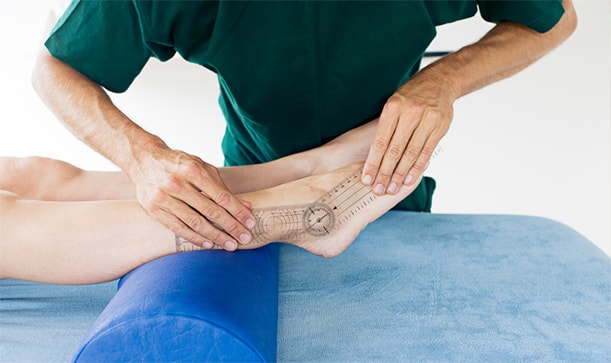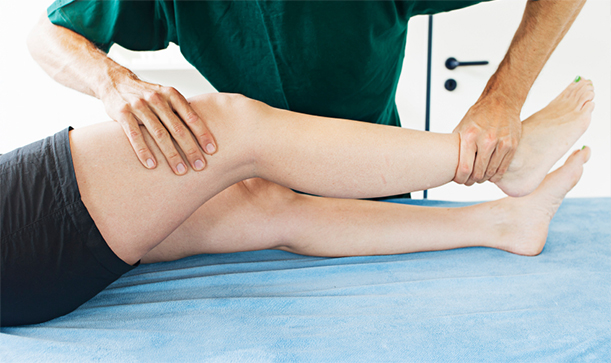CK Physiotherapy
AREAS COVERED
W7, W5, W13, Ealing, West London
57 Elthorne Avenue
Hanwell, W7 2JY
T: 020 8566 4113
M: 079 572 46185
E: info@ckphysio.co.uk
Location / Parking
We are situated in Hanwell, between Boston Manor Road and Northfields Avenue, south of the Uxbridge Road.57 Elthorne Avenue
Hanwell, W7 2JY
There are parking restrictions Mon - Fri 9-10am and 2-3pm. If you need a permit during this time please inform your therapist when you arrive. There are no parking restrictions at other times.
Opening Times
Please phone the number above during working hours to make an appointment. Our reception service will be happy to book your session.
London Underground / Bus Services
London Underground
10 min. walk from Boston Manor Tube Station.
15 min. walk from Northfields Tube Station.
Bus Service
E8, E3, E2, 207, 607, 83
Request Call Back
Our Blog
Physiotherapist Advice on Sports Injuries Treatment
By: BryanKelly (Psst, View author in Google Plus) Date: Feb 28th, 2022Whether you’re into a sport for fun, to keep fit and healthy or professionally; sports injuries are common.
They can happen to anyone, at any time and they can be both painful and serious.
When you’re hurt it's best to seek sports injuries treatment quickly.
Physiotherapist advice is the sooner you get treatment, the better your chances of recovery and being able to play your chosen sport again soon.
Today we will cover the fundamentals of sports physiotherapy for you to minimise treatment on sports injuries.
Plus, know when and where to go if you’re in need of sports injuries treatment.
What are the most common types of sports injuries?
Ranging from a mild sprain to a severe fracture, it can happen to anyone.
A sports injury can occur during any sporting activity. Its effects may be felt instantly or after the event.
Physiotherapy advice for amateur and professional athletes is to be aware of the different types of injuries that they can experience while exercising or playing sports.
COMMON SPORTING INJURIES INCLUDE:
(but not limited to)
-
Muscle strains, sprains, and tears
-
Tendonitis
-
Tendon ruptures
-
Shin splints and bone fractures
-
Joint dislocations
-
Tennis elbow and golfer’s elbow
-
Runner’s knee and torn ACL
Sports Injuries: Symptoms, Causes, Diagnosis, and Treatment (verywellhealth.com)
Sports physiotherapy philosophy is to advise and guide to minimise the need for sports injuries treatment.
Prevention is always better than a cure!
We know it may sound obvious, but one of the most effective preventative measures to common sporting injuries is warming up correctly.
Most sports injuries treatment is received due to not limbering up the body sufficiently doing these two things.
-
Stretch: Stretching is important to help warm up the muscles and prepare them for the strain of exercise. It also helps to lengthen the muscles and prevent injury by easing tension on the joints, tendons, and ligaments.
The importance of stretching - Harvard Health
-
Warm-up: Warming up is just as important as stretching because it allows your body to gradually increase its heart rate and blood flow before exercising vigorously. A good warm-up should be 6-10 minutes, but more if you feel it’s needed!
https://www.nhs.uk/live-well/exercise/how-to-warm-up-before-exercising/
Many people do not realise how important it is to warm up before any sport or exercise.
A general warm-up should include some light stretches, dynamic movements which get your heart rate up, and then some static stretches.
If you are going to do a high-intensity workout, then you should have an additional warm-up before that - this can be as simple as jogging for 10 minutes.
Extra physiotherapy advice for injury prevention
The most common injuries in sports are caused by overuse or repetitive stress injuries such as shin splints and tennis elbow.
We know these types of injuries can be avoided by warming up properly and taking regular breaks from your routine.
But what else can you do?
The following tips are extra physiotherapist advice to make sure you’re in tip-top condition and further reduce the intervention of sports injuries treatment.
-
Get your body checked by a sports physiotherapy specialist before you start any new activity
-
Protect yourself by wearing the appropriate gear like correct footwear, shin pads, wrist guards, helmets etc
-
Have a rest day after every 2 days of intense exercise
-
Cool down after your activity
-
Take care of your body by eating well and getting enough sleep.
If you follow these simple steps, you’ll help yourself avoid sport-related injuries and enjoy more!
Physiotherapy treatment on sports injuries
Sports physiotherapy is the best option used for the prevention, management, and recovery of sporting injuries.
In the event of serious injury, sports physiotherapy is also used pre and post-surgery.
It’s important to note that not all injuries require surgery. In fact, many injuries can be treated with physical therapy and rehabilitation.
Through sports physiotherapy, our licensed physiotherapists will help you return to full function and the activities you enjoy.
OUR PHYSIOTHERAPISTS CAN HELP YOU WITH:
-
Identifying the cause of the injury and the type of injury
-
Assessing your condition
-
Recommending treatment or rehabilitation
-
Providing advice on how to avoid future injuries
Sports injuries treatment focuses on the management of your injury, where you will receive physiotherapist advice to promote recovery and overall wellbeing.
Our physiotherapists are trained to use exercise, manual therapy, and other techniques. To help people with injuries or illnesses, to recover movement and function.
SPORTS INJURIES TREATMENT MANAGEMENT WILL:
-
Decrease pain
-
Reduce swelling
-
Minimise muscle spasm
-
Increase blood flow
-
Improve range of motion
-
Prevent further injury
To ensure you receive the best sports injuries treatment, our physiotherapist will use different physiotherapy techniques and approaches.
Depending on the severity of your condition, some physiotherapy treatments might include:
-
Manual therapy: manipulating muscles and soft tissues by applying pressure with hands or elbows
-
Electrotherapy: using non-invasive electric stimulation on the skin
-
Acupuncture: evoking the body’s natural healing process
-
Exercise: teaching you how to move again, improve mobility, circulation, and range of motion
-
Stretching exercises: focusing on flexibility
We want you back in the ring!
Ok, so boxing may not be your thing.
But we want your sporting injury to be dealt with, recover quickly, and come out fighting.
The importance of seeking early sports injuries treatment from a qualified physiotherapist cannot be underestimated.
The sooner your injury is attended to, the less severe the long-term consequences are.
Fill out our online booking form to discuss any questions or queries you may have related to sports physiotherapy or receiving sports injuries treatment.
The key to successful rehabilitation is to understand what needs to be done and help you get back to your normal life as quickly as possible.





